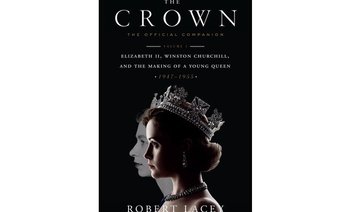Syria is an ongoing tragedy and for many Syrians living abroad, their homeland is nothing but a memory. The country they knew no longer exists.
Alia Malek, an award-winning journalist and civil rights lawyer who was born in Baltimore to Syrian immigrant parents, has released a new book titled: “The Home That Was Our Country.” In the book, Malek tells the story of Syria through her grandmother’s apartment building and the Damascene neighborhood that surrounds it. Malek decided not to write about the bombing, the war zone and the political factions, but to focus on the lives of ordinary people. “It’s so utterly human and relatable and accessible. I think a lot of the humanity of Syria (is) lost when we only focus on what is happening at a military level or at a political level. You know, Syrians themselves are entertaining, are intelligent. They’re the best people to tell their own story. That’s why, you know, I kind of invited the reader to come experience this as if they were a member of the building, or a member of the household or a member of the neighborhood. That’s the only way that I was going to be able to break through the sort of stone-facedness with which I think a lot of us are looking at Syria these days,” Malek said in an interview with media personality Lourdes Garcia-Navarro.
The story begins with her great-grandfather, who was born under Ottoman rule. Malek acknowledges that “Origins” was the most challenging chapter to write. She follows her family under the repressive regime of former Syrian leader Hafez Assad and his son Bashar. “It was a fascinating activity. You have to wade through… what is legend and lore about a family and sort of start trying to piece together what is actually real,” Malek said.
Her research for the book began when Malek moved to Damascus in 2011. She had arrived in Syria to finish restoring her grandmother’s house at a time when the entire region was experiencing the winds of change and she wanted to write a book about her grandmother, Salma, which she had been planning to do for a long time. During the two years she spent researching her family, she became increasingly worried about her safety and theirs.
The book begins with Malek declaring that a number of her family members wanted her to leave Syria. “By the time I left Syria in May 2013, many in my family were happy to see me go. For them, the day hadn’t come soon enough.”
When authoritarian regimes in Tunisia, Egypt and Libya were overthrown during the Arab Spring, all eyes turned to Syria as if it would be next in line. However, the regime that had ruled Syria for more than 40 years remained firmly in control.
“I wanted to be there at a moment when the entire region was in the throes of change. For an optimist, Syria was on the precipice of something better. For the pessimist, it teetered dangerously on the abyss,” Malek wrote.
Malek’s presence in Syria was causing suspicion and tension among those who knew her. Some believed she was a spy while others feared for their safety. Malek spends a lot of time in the book talking about how the state rules with fear, saying: “One of the ways the Assad regime has been able to control the population is that if they’re going to punish you for your dissent or your behavior, they don’t just punish you, they can punish those around you. Let’s say they detain me, maybe I’d get out eventually. But many people would still be left behind.”
There is much that has remained unspoken and it has taken a toll on society. Malek believes that these unspoken traumas are relevant to understanding Syrian society and what is going to emerge when the dust settles.
“And now, how many Syrians are outside of Syria? They are able to have unchaperoned interactions with each other that aren’t moderated by the state. I am hopeful about those interactions. They might be a way for Syrians to get to know each other in a way that they weren’t able to before and to represent, for themselves, what they think and may believe. It’s the only way to go forward into the future, I think,” Malek wrote.
This memoir reads like a novel. It alternates between reflective moods and lively dialogues. Malek blends the story of her family with the history of Syria in what has turned out to be an engaging and interesting book.
At the end of her memoir, Malek reveals her hope that “Syrian society could maybe one day be pieced together along new lines that we hadn’t previously imagined. Friendships and relationships were being built among folks who would never have met each other before because their lives would not have taken them beyond their own villages. It was also bringing them into contact with Syrians from the diaspora of different classes. The status quo in Syria had depended so much on keeping people afraid of each other, of telling each other that the other would devour him or her if given the opportunity.”
She does, however, share a tragic observation and writes: “It’s more than a conflict. It’s a calamity. It’s a catastrophe.”


Book Review: A memoir of life in Syria
Book Review: A memoir of life in Syria

What We Are Reading Today: ‘Geology’ by David Bainbridge

The geological processes that underlie all life on Earth can seem intimidatingly vast, ancient, and sometimes even alien.
Our planet’s dynamics have fascinated humans for millennia, yet only recently have we developed a clear picture of how they work.
This book presents the discoveries and critical scientific advances that inform our understanding of Earth’s origins and the forces driving geological change.
Each chapter tells a key piece of the story, focusing on a major aspect of geology that shapes how we experience our world.
© 2026 SAUDI RESEARCH & PUBLISHING COMPANY, All Rights Reserved And subject to Terms of Use Agreement.














